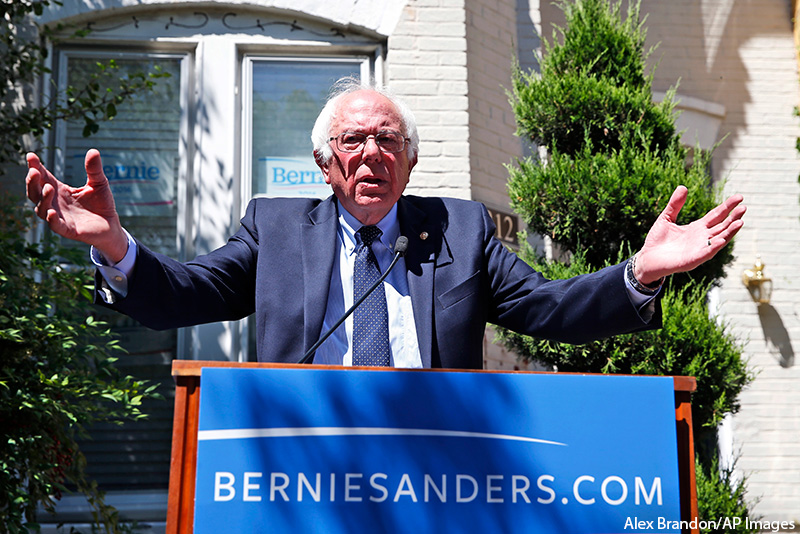- Current Events New Alabama Congressional District Selects Candidates
- Current Events Nebraska Rejects Winner-Take-All Proposal
- Citizenship Voting Under Age 18
- Citizenship Citizenship in Action
- Democratic Party Biden’s and Trump’s Recent Primary Results
- Elections Trump and Biden Win South Carolina and Michigan Primaries

What is Bernie’s Next Move?
Last we reported on Democratic candidate Bernie Sanders, he had lost the official delegate numbers race, but vowed to “continue the struggle.” This week, we take a closer look at what that means, what the senator is saying, and what it might mean for his political party.
Speaking Out
In addressing his supporters after his final primary defeat, Sanders vowed to continue his “political and social revolution,” comparing it to the civil rights, women’s, and gay rights movements. He said that the success of winning 22 state primaries and caucuses with almost no organization and or money just a year ago means that the ideas of his campaign were not radical and fringe but mainstream. He said that his campaign was not about a single candidate, but transforming America.
Despite a refusal (as of yet) to officially endorse Hillary Clinton, Sanders has made it clear that defeating Donald Trump in the general election is one his main priorities. He said, “we do not need a major party candidate who makes bigotry the cornerstone of his campaign.”
Sanders returned to the Senate floor on June 20, voting for the first time since (on the series of high-profile gun proposals). When candidates return to their state, there is usually backlash. Chris Christie, Scott Walker, Marco Rubio and Ted Cruz have all seen a drop in their approval ratings. But Sanders’ run has had the opposite effect. Where he had once been seen as a “fringe independent” and largely ignored by the Washington establishment, the Vermont senator has maintained his status as a champion of progressive causes.
Superdelgate Reform
One of the most significant differences in the nominating process between our two major political parties is number and type of voting delegates. The Democrats have more delegates than Republicans overall and a far greater percentage of superdelegates. Unlike regular delegates, who are obligated to vote for the candidate who won the district they represent, superdelegates may cast their vote with whomever they choose. Sanders believes that this practice gives prominent members of the party too much influence over the nominee. During the primaries, many of the superdelegates lined up behind Clinton, giving her a significant lead going into the race. Those in favor of reform want stronger language in the convention platform to make it clear that in future election cycles, superdelegates should be assigned to more closely align with the will of the voters.
Sanders effort to reform the superdelegate system is gaining momentum within the Senate. At least 20 Democratic senators have reportedly expressed support in changes to the nominating process. The state of New Hampshire recently passed a resolution calling for a reform of its own superdelegate system at it annual state convention. But not all constituents agree. The Congressional Black Caucus, for instance, is firmly opposed to such measures. It is likely to be a topic of debate during the upcoming Democratic National Convention.


